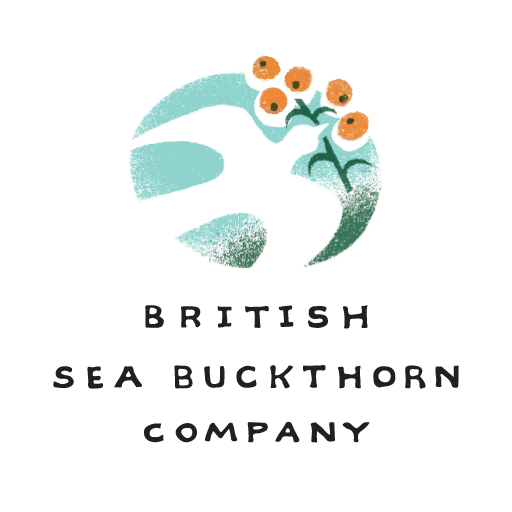Our nutritionist, Dr Lucy Williamson, writes here about the importance of omega oils and how sea buckthorn is unique in the variety of omega oils that it contains.
Omega oils are involved in many every-day processes in the body, from transporting vitamins, making hormones and the correct functioning of cells, so they’re of huge importance in our overall health! Seabuckthorn is totally unique in the variety of health-giving Omega oils it contains, not just in its seeds but in the berries too. The seeds are especially rich in Omega 3&6, the two ‘essential fatty acids’ that we are totally dependent on our food for, while the soft parts of the berry are one of very few plants to contain valuable Omega 7. Omega 9 in seabuckthorn, is perhaps better known as Oleic acid, the beneficial fat in olive oil.
The nature of fat in our food depends on the types of fatty acids it contains – saturated and unsaturated. All fats contain both but in general plant oils contain more unsaturated (liquid at room temperature) and fats of animal origin contain more saturated (solid at room temperature). Including more plant oils in our diet is really beneficial for our health (1). Seabuckthorn, as well as being a rich source of Omega oils, also contains plant sterols, natural plant compounds which help to promote good cholesterol levels. It’s also a fabulous source of fat-soluble vitamins A&E. You can read more about all its other beneficial nutrients here but let’s concentrate on those Omegas!
Omega 3 is vital for the structure of our cell membranes which ensure the proper functioning of all our body cells. So, it’s easy to see why a diet rich in Omega 3 gives such wide-ranging health benefits from protecting against heart disease & regulating inflammation to giving our skin a healthy glow! For example, by keeping cell walls flexible, Omega 3 helps to keep blood pressure down (because the cells lining blood vessels stay stretchy) which in turn helps to maintain a healthy heart. The anti-inflammatory function of Omega 3 is especially important in preventing blood clots, (which increase the risk of stroke) but new research is starting to show other benefits such as improved bone density, better outcomes in auto-immune disease like Rheumatoid Arthritis and protection against Dementia in older age. It’s important to mention that there are two types of Omega 3 which are especially important for our vision, brain health and their anti-inflammatory function. These are EPA and DHA and are already present in oily fish. Plant Omega 3 however, needs to be converted by our bodies into these two forms before we can get the same benefits. So, if we’re relying on plants for our Omega 3, we need a lot! (2)
Omega 6 is high in the seeds of seabuckthorn, making up about 40% of the oils there! However, it also accounts for about a third of the oils in the berries too. Omega 6 in our food helps to maintain healthy cholesterol levels by raising ‘good’ HDL cholesterol and lowering ‘bad’ LDL cholesterol. It’s also the most abundant oil in our skin, so as well as promoting a natural glow it can help with acne, atopy and psoriasis. One particular type of Omega 6, GLA (better known perhaps as the beneficial oil in evening primrose oil and borage) is especially high in seabuckthorn and can help to regulate hormonal changes during menopause.
Getting the right balance…
It’s really important to strike the right balance of Omega 6: Omega 3 in our food. Our UK food intake surveys show us that on average most of us manage 6:3 at a ratio of 10:1 but 4:1 is far more beneficial for our health (3). British seabuckthorn contains a balance of 1:1 so provides a very welcome functional food to help us get a good balance.
Omega 7 is rarely found in foods; happily seabuckthorn berries are one of the very few, rich sources. Research has shown Omega 7 to be extremely effective in promoting healthy mucous membranes – the delicate lining of our respiratory and digestive systems. (4) This is one of the reasons why seabuckthorn pulp as a natural food supplement is very popular in preventing stomach ulcers in horses. Having practiced as a Vet before becoming a Nutritionist, I can safely say this is something they’re very prone to especially with the stress of racing. However, it’s the mix of over 190 nutrients in seabuckthorn which is thought to amplify the beneficial effects of these nutrients individually. No wonder then, being packed full of antioxidants like flavanols, Vit C, carotenes (Vit A) and tocopherols (Vit E), that seabuckthorn, having all these nutrients together, can be so beneficial against the long-term effects of stress on digestive health, the cardiovascular system and skin condition. Omega 7 may also be beneficial in Diabetes as it increases our sensitivity to insulin. (4)
Omega 9 is also present in high quantities in olive oil and there are now many links between the olive oil in a Mediterranean-style diet and protection against longer-term heart disease and cancer.
References
- Saturated Fats and Health: SACN Report https://www.gov.uk/government/publications/saturated-fats-and-health-sacn-report accessed online 24.04.20
- P. C., (2017) Omega 3: the good oil Nutrition Bulletin 42: 132-140
- National Diet and Nutrition Survey (NDNS) 2018 update
- Marsinach et al (2019) Impact of seabuckthorn oil fatty acids on human health Lipids in Health and Disease 18: 145


Hello,
I have just read your blog & am very interested in your reference to sea buckthorn for horses. Does your company sell it for horse consumption, please? Where would I find details?
I have 2 elderly mares with Cushings & am always looking for something that I may offer them that could help their health.
Thank you if you have time to reply to my message.
Kind regards
Susan Burns
Hi Susan,
Thank you for getting in touch. You can find more information on our equine product by clicking the link below. It is available through equine specialist Nupafeed. Contact them if you want more details. Have a great weekend.
https://www.nupafeed.co.uk/product/bsc-seabuckthorn-horses-digestive-supplement/
I really like your blog.. very nice colors & theme.
Did you make this website yourself or did you hire someone to do it for you?
Plz answer back as I’m looking to create my own blog and would
like to find out where u got this from. many thanks
Hi Helen,
Thank you for liking our website. I am afraid that my answer is not going to help you as it was designed jointly by my two sons.
With regard to blogs – another thank you. I have stopped doing regular blogs and must start again.
Life seems so full that sometimes the simple things get left behind.
Good luck.
David